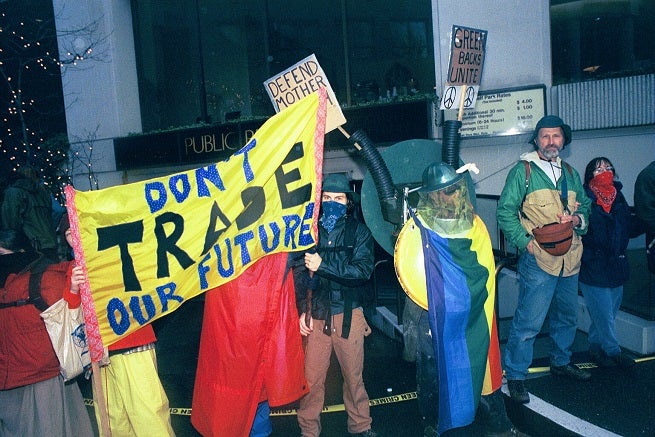Uncategorized
China is Front and Center in Next Trade Fight

The Teamsters and other fair trade allies won a tremendous victory when the U.S. decided to withdraw from the Trans-Pacific Partnership earlier this year. But there is still much more to do in the fight to create a level playing field for U.S. workers.
Last week, the Trump administration took a couple more important steps in the effort to improve trade so as to benefit hard-working Americans. It began when the Department of Commerce announced it would fully review China’s non-market economy.
As it stands, the Chinese government’s significant involvement in the nation’s economy has created an imbalance that harms American workers when it comes to trying to compete globally and should disqualify China from receiving market economy status (MES).
“It is no secret that many Chinese companies are owned or heavily influenced by the state, which creates an environment where collective bargaining for wages and working conditions does not exist,” Teamsters General President Jim Hoffa said. “When China fully satisfies the requirements outlined for market economy status, including respect for worker and union rights, then and only then should they be recognized as such within the WTO.”
It’s been just over 15 years since China became part of the World Trade Organization. Its record, however, does not support its effort to be automatically conferred MES, which would reduce the ability of the U.S. to bring anti-dumping claims against China. The world’s most populous nation shouldn’t be given a free pass.
The Commerce Department, as part of its review, will apply a six-part test, including weighing the extent to which wages are determined by free bargaining between labor and management. The facts will likely show China is not eligible for MES and is, in fact, still a non-market economy.
The White House is taking a similarly hard line in separate executive orders issued last week that more broadly tackle trade deficits and tariff enforcement. One commissions a report on the trade practices of countries with which the U.S. has a trade deficit and seeks to identify abuses and practices that contribute to the deficit; while the other seeks to collect an estimated $2.8 billion in anti-dumping and countervailing duties against foreign trade partners that have not been collected since 2001.
As of February, this nation’s trade deficit with China stood at $31.7 billion, up $1.6 billion from the previous month. Sadly, this is nothing new for the U.S. Economists who agree that, for the last decade, these deficits have been driven by conscious monetary strategies of American trading partners to buy dollar denominated financial assets to increase the value of U.S. currency against theirs, with the intended effect of making their exports cheaper. China is historically among the worse currency manipulators.
As President Trump gets ready to meet with China’s President Xi this week, now is the time for action. It’s a chance for the President to stand up for American workers and hold the Asian nation accountable for its years of trade cheating, which has cost the U.S. millions of good jobs. As 12 Democratic senators told the President in a letter sent yesterday, this summit provides an opportunity for him to deliver for workers.
It’s time to make American trade policy fair again.